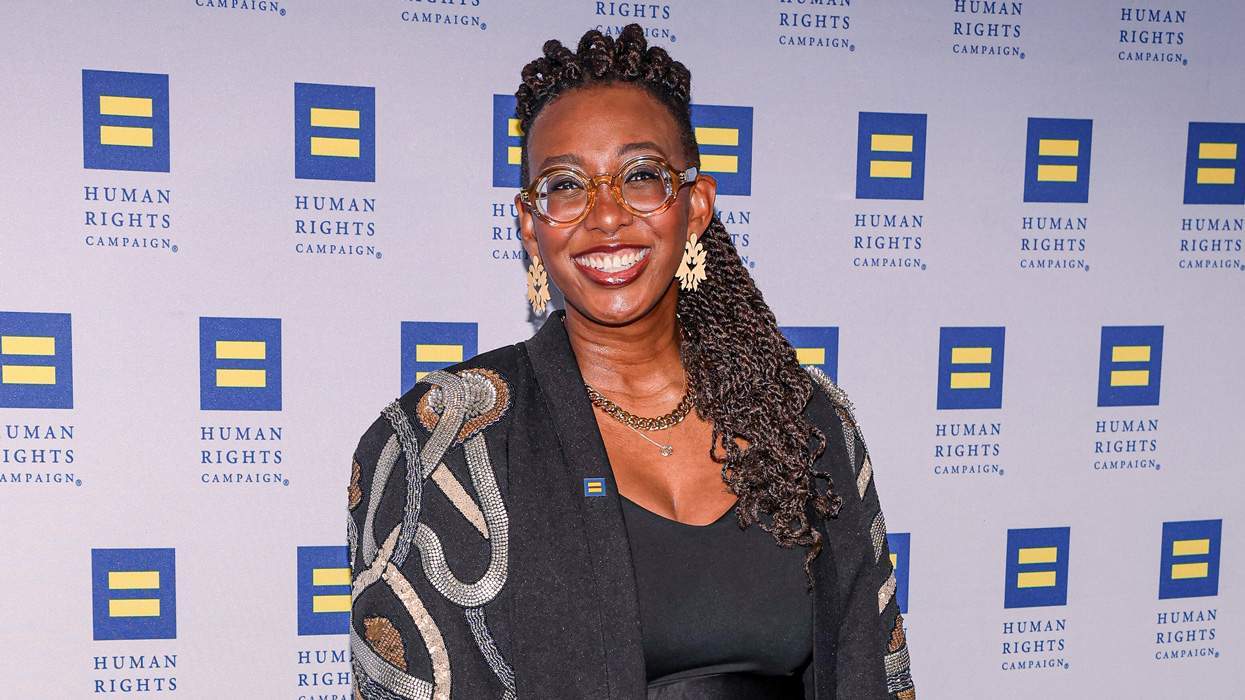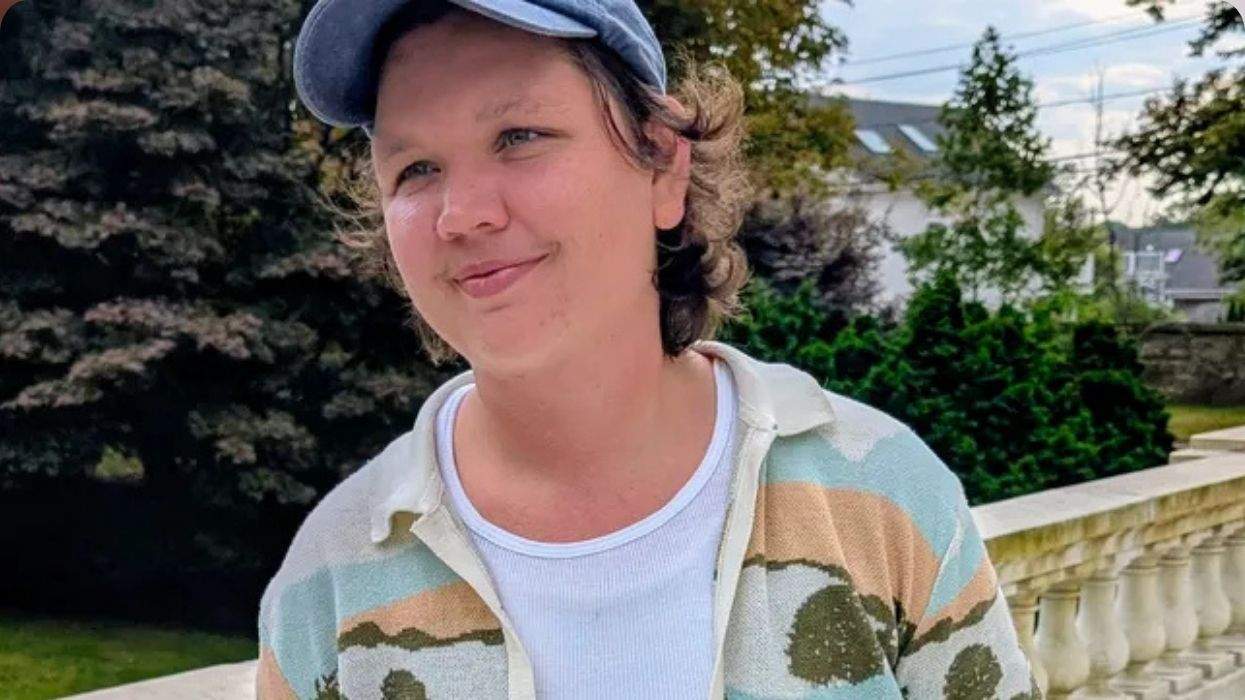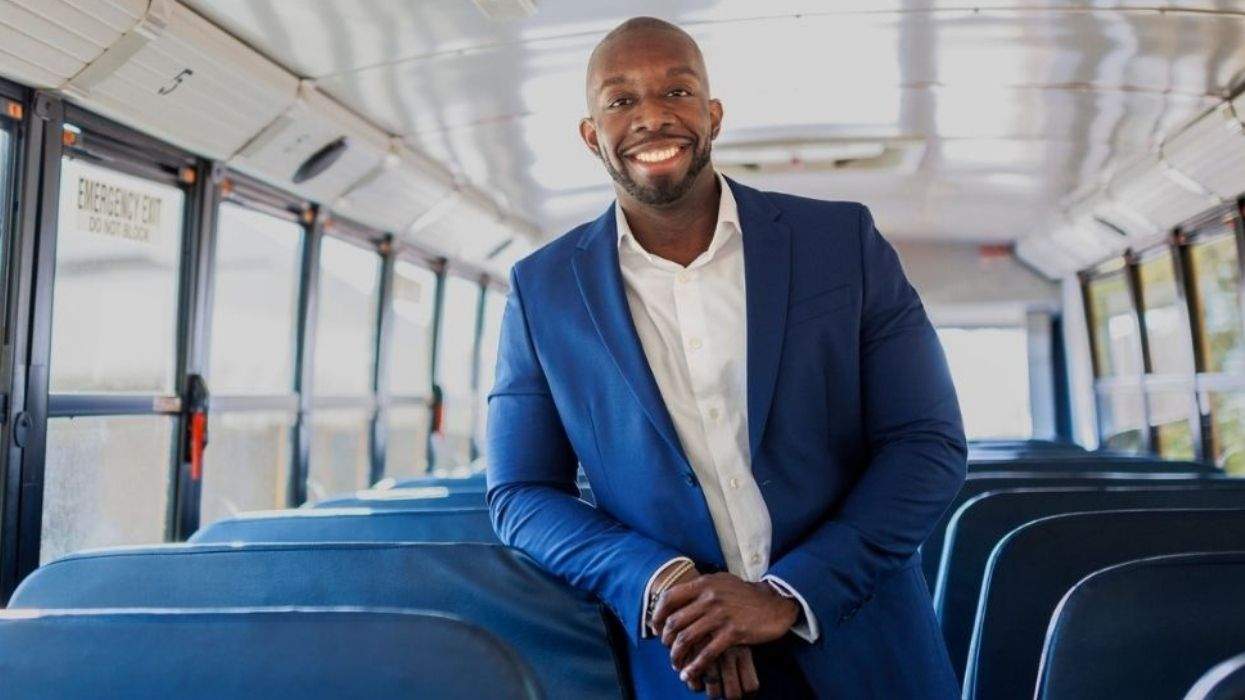As a trans woman reflecting on Transgender Day of Visibility this year, I find it incredible to see the progress our community has made in recent years. Built on the work of generations of grassroots transgender advocates -- especially transgender women and transgender people of color -- the voices of the trans people who live, work, and thrive in communities everywhere are finally reaching the national stage. Unfortunately, this broader visibility can also be dangerous and is too often met with backlash, harmful rhetoric, and misinformation about gender-affirming health care as it becomes more widely recognized.
As both a patient and a medical provider, I've seen this reflected acutely in our health care system, and believe that we are at a critical turning point when it comes to systemic change and trans visibility more broadly. While LGBTQ+ advocates across the nation are fighting tirelessly to defeat bills seeking to restrict access to lifesaving gender-affirming care and incredible advocates like 16-year-old Stella Keating are making history by participating in the recent Equality Act hearings, it can be hard to celebrate knowing that trans people are still facing enormous obstacles.
Just last month, at a confirmation hearing for Dr. Rachel Levine as assistant U.S. health secretary, Sen. Rand Paul -- who is a medical doctor himself -- launched a baseless, transphobic tirade about gender-affirming care rather than discussing Dr. Levine's numerous professional qualifications and her goals for our current health care system.
I've seen similar stigma, dismissal, and harassment throughout my 10 years working as a provider specializing in gender-affirming care. As a physician myself, I have the benefit of the medical knowledge to be able to train my doctors to treat me effectively, but trans patients shouldn't need a medical degree to get the care we need. In countless ways, the current system fails to treat transgender patients with respect and dignity, often refusing them care or undermining their efforts to advocate for their own needs.
But I've also seen that a better system is possible. Since launching a telehealth service dedicated to the transgender community, I've seen the incredible impact when patients are able to get the gender-affirming hormone therapy they need from clinicians with deep professional and lived experience from the trans community, in a convenient and supportive environment. My work is just one piece of the puzzle, though. Ending discrimination in health care will require the collaboration of patients, health care providers, policymakers, researchers, business leaders, and more. When all people can live healthy and full lives with self-determination, our entire community and economy is stronger and more vibrant.
This collaboration is more urgent than ever because the anti-trans bills currently sweeping across the country don't just threaten the safety and well-being of trans people: They threaten us all by condoning political interference in medicine and further damaging our already broken health care system. Instead of infantilizing or villianizing transgender people by wrenching away our access to health care, it's time for medical, science, and policy leaders alike to recognize their responsibility to call out misinformation and dismantle misconceptions about what inclusive health care means.
Across the board, medical experts and professional associations agree that gender-affirming care is essential health care and can be lifesaving. Any credible clinician, insurance provider, clinic administrator, or public health official should understand that denying needed care flies in the face of medical best practices. All people deserve the right to bodily autonomy and deserve to exercise that autonomy in making their own decisions about their health care, in consultation with their doctors, without political interference.
So it is not enough to halt these current dangerous attacks in their tracks; we must actively expand access to gender-affirming care and ensure that all people working in health care understand and respect the needs of transgender patients. This means respecting patients' names and pronouns regardless of legal names or gender markers in their medical records, centering gender-inclusive language when discussing different forms of care, tackling financial barriers to access, seeking input from diverse communities when developing health policies, investing in research and innovation, educating providers and staff on cultural- and trauma-informed care, and much more.
Anti-transgender legislative attacks will doubtlessly continue, and the fight will be grueling, but we are resilient and stronger than ever as we leverage our visibility into political power. With the collaboration of our community leaders and allies in medicine, business, and law, I am confident that one day, our nation's health care system will truly work for transgender people, and all people.
Jerrica Kirkley, MD (she/her/hers), has been a provider of gender-affirming care for nearly 10 years and is the cofounder and chief medical officer of Plume, a telehealth service connecting transgender people with gender-affirming hormone therapy.















